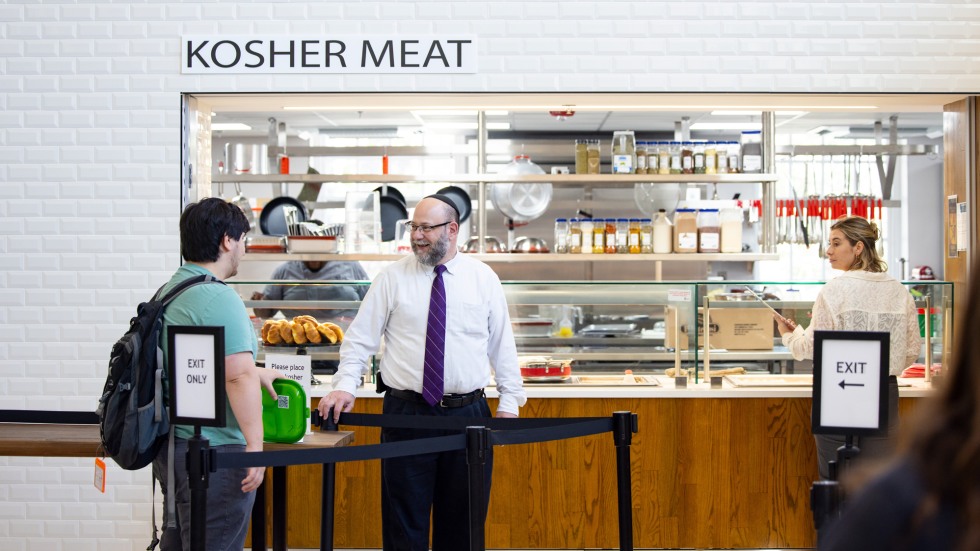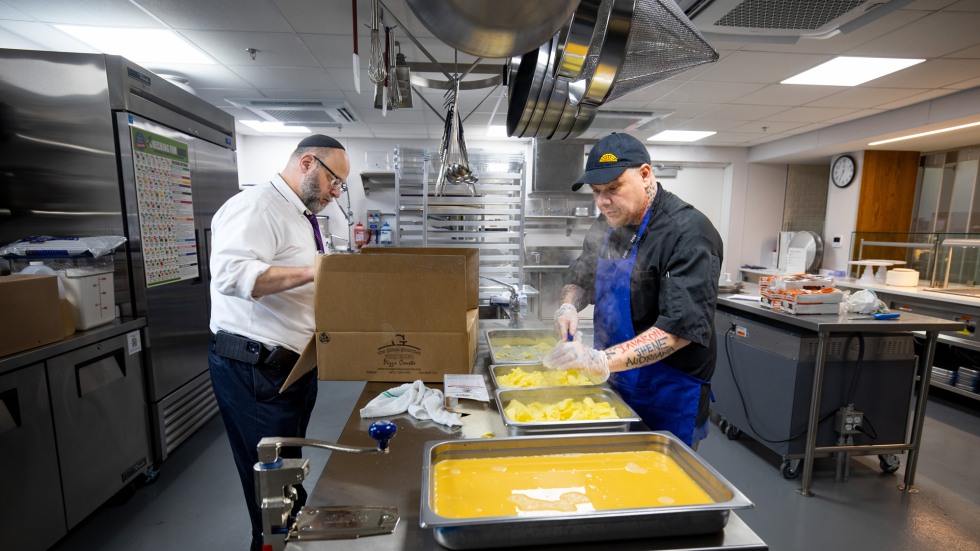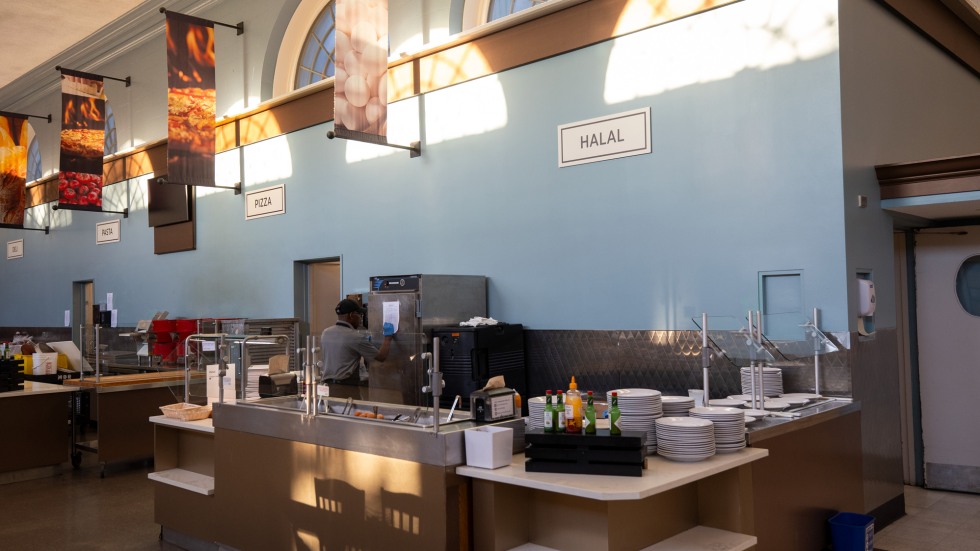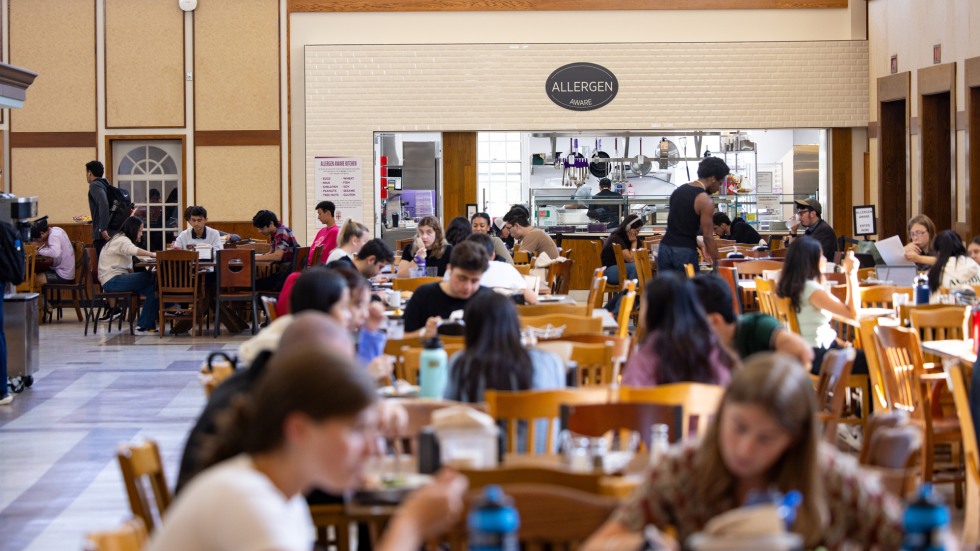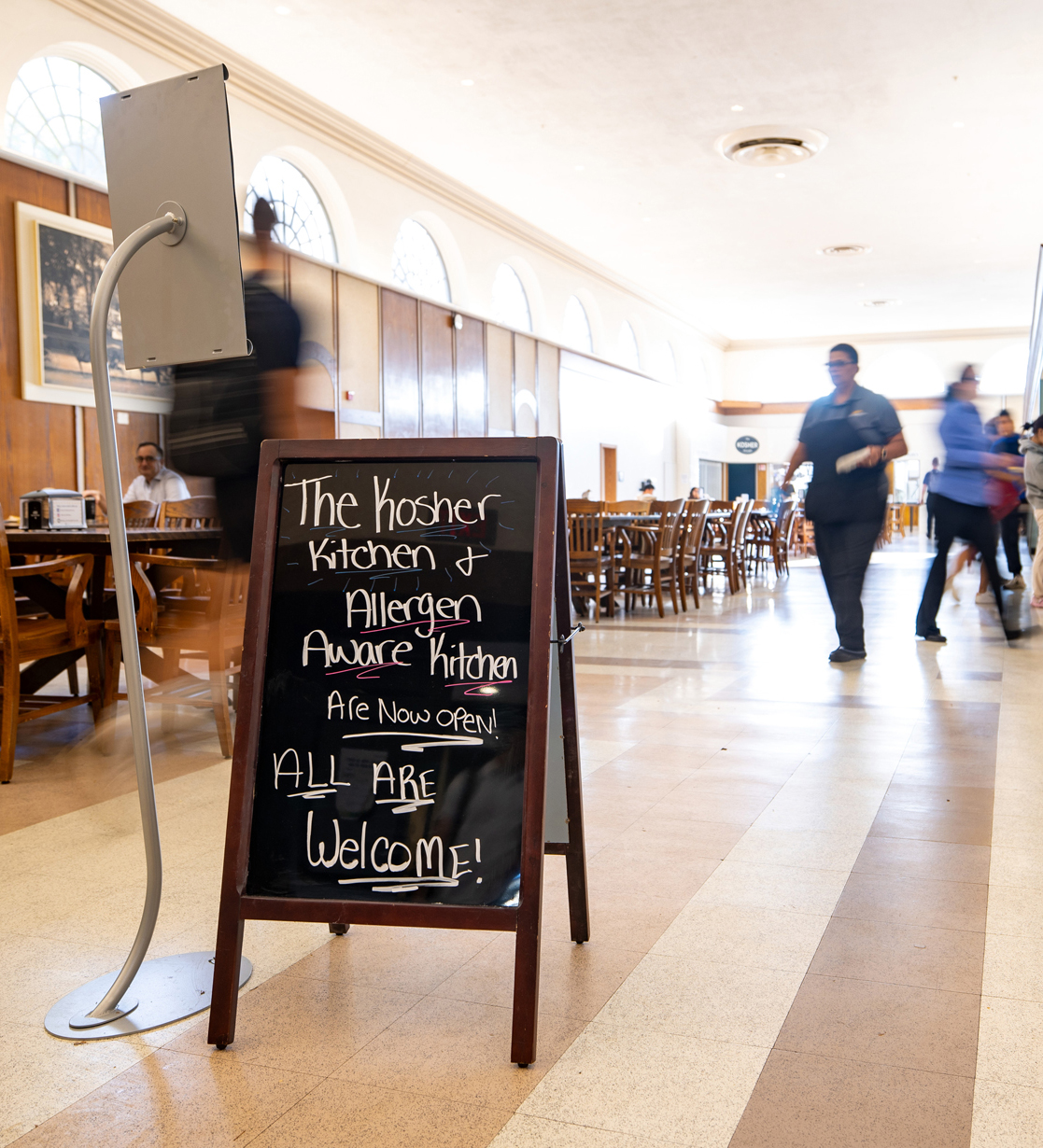PROVIDENCE, R.I. [Brown University] — New dedicated kosher, halal and allergen-aware spaces in the largest dining hall on Brown’s campus are providing fresh and accessible meals for students who observe Jewish or Islamic dietary laws, or who have food allergies or other specific dietary requirements.
Brown Dining Services opened the new spaces on Wednesday, Sept. 20, in Sharpe Refectory — affectionately known as the Ratty — where students are savoring food prepared in a new kosher kitchen, an enhanced halal station and an allergen-aware kitchen.
The new spaces were a welcome sight for many students, including sophomore Victoria Zang, who visited Wednesday after morning classes to enjoy a meal prepared in the new kosher kitchen.
“I would usually try to eat the normal offerings, but it was difficult,” Zang said of the kosher options previously available in the Ratty. But now, “if you keep kosher, if you don’t keep kosher — it doesn’t matter. It’s for everyone.”
